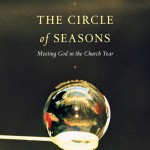{Caveat lector: This post is long. Do not proceed if you are in a hurry.}
I was 13 years old when I let the harpies in. I didn’t even know I was doing it. I couldn’t know how much damage I was wreaking on myself by opening the door to these shrieking uglies. Of course, they didn’t start by shrieking. They wormed themselves along the lines of my devotion to God. “God hates the proud,” they said. “Are you humble enough?” And then they whispered words of condemnation, words that in my youthful naivete I thought were wise words, words meant to humble me and rid me of my pride and draw me closer to God. I could not have said this then. I did not know what I was doing, or what the harpies were doing.
Twenty-six years later, they had become part of me, the ugly soundtrack in my head. They screeched with delight over my every failing. Every time I raised my voice or, God forbid, actually yelled at my kids, they’d keel over in gloating glee. “You yelled at your precious children? These creatures God entrusted to you! That’s awful. That’s terrible. You’re a horrible mother.”
Every time I questioned my calling as a writer, they’d cackle and cry, “Writing is a waste of your time. No one reads your words. Clearly, you’re not very good at this. You’re a fraud, a poser, a loser.”
Every time I felt overwhelmed by my life, they’d spit poison in my ears. “See,” they’d hiss through their blood-red lipstick, “you can’t hack it. You’re weak and pathetic, and you’ll never be any better than you are now. You’re a joke and a failure.”
My thoughts ran their constant litany of accusation, fear-mongering, self-pity, self-loathing, self-flagellation, and condemnation.
My spiritual director, Margie, had been telling me for ten years, “Kimberlee, you know that’s not the voice of God, right? You know that God’s voice is a voice of love.”
And I had nodded and said yes, which was true. I knew that God loved me. Of course I did. I was a cradle Christian. I’d been actively trying to follow Jesus my entire conscious life. How many millions of times had I sung “Jesus Loves Me” or some other song that proclaimed the love of God? Of course I knew those ugly voices weren’t God’s.
Except I didn’t. And I didn’t know that I didn’t know until one December morning when Margie said something that turned my thought-life upside down. Or rather, right side up.
If the scene were a cartoon, we’d be pictured sitting in the small room at the back of Margie’s house, where we’ve been sitting and praying every month for a dozen years now. Through the windows at my back and hers, you’d glimpse the bare branches of trees against the gray winter sky. In a speech bubble coming out of Margie’s mouth would be, “blah blah blah crucifixion process blah blah blah.”
Seriously. At the time it felt as though I had cotton in my ears that suddenly and only for a moment got pulled out so I could hear those two words: crucifixion process. But those two words were what I needed.
I started up in my chair. “Margie!” I interrupted her. “That’s it! That’s it!” I stared at her with wide, wonder-filled eyes, trying to articulate the blinding flash of clarity her words had wrought in me. “All my life I’ve thought those voices in my head were the crucifixion process. I thought they were keeping me humble or—or somehow sanctifying me. I thought they were the path of salvation, the way of dying to myself. But it’s the voices that need to be crucified!”
Words cannot express the revolution that had just taken place in my thinking. If I had a personal devil whispering the harpies’ words into my mind, he would have been writhing in agony at that moment, cowering in fear because I’d found him out, gnashing his teeth in anger that his days of power over me were drawing to an end.
*****
On another gray December day a year later, I woke feeling anxious. At that time, anxiety was still not uncommon for me, but it had been a long time since I’d woken up feeling anxious. The day devolved from there. By mid-morning my heart was pounding and my hands were shaking.
There was nothing to be afraid of. No saber-tooth tigers lurking outside the door. No ugly emails in my inbox. No school, even. A day off! Yet all I wanted was to curl up in a ball in my closet and cry.
You see, the harpies were shrieking ugly words in my ears—words like fool and failure, like poser and imposter, like greedy and grasping and hypocrite. And they were flashing ugly visions before my eyes—visions of public humiliation and everyone laughing at me and me too stupid to realize it, visions of my children as adults scorning and vilifying me, visions of a future marked by failure after failure after failure. And of course, they wrapped all this ugliness in a veneer of spirituality, making their fear-mongering words and images seem like Visions from Heaven, like foreknowledge from God Himself.
The harpies were loud that morning, and they only got louder the longer I covered my ears and pretended not to hear. The worst thing to do was the very thing I most wanted to do: cower in my closet and cry. It makes them so gleeful when I curve in on myself, and when they’re gleeful, they’re even more spiteful. So I put on my tennis shoes and took a walk. I breathed the crisp cold air and noticed the frost-covered leaves lining the sidewalks and jaunted down to my favorite little park with a bench overlooking the Sound.
Even as I walked, part of me was still curled up in a corner of myself, cowering in childlike fear of the harpies. Part of me was holding the cowering child, crooning over her and cradling her the way I’d cradle my daughter if she were scared.
And part of me was standing between those two and the harpies—a warrior queen defending her people from shrieking, fear-mongering, spiteful, wing-flapping hags. That part of me was wielding a sword—the sword of the Spirit, which is the word of God—which she had drawn from its sheath in the belt of truth. I had learned a few things in the year since I’d had that epiphany in Margie’s spiritual direction room, and they were slowly seeping into my heart, slowly becoming the truth I lived by, and I knew that the only way to get rid of the harpies was to grab them by the throat and look them in the eye and fight their lies and and half-truths and less-than-half-truths with Truth:
- God never discourages. Take heart, Jesus said. To take heart means to have courage. The God who commands us to fear not, to take heart would never dis-courage us.
- God’s voice is never a voice of condemnation. Conviction, yes, but never condemnation. These accusing, condemning voices drive me into myself. God wants to draw me out of myself.
- These voices scream and shrill and harp and ridicule. God speaks in a still, small voice. God is gentle and does not break a bruised reed or snuff out a smoldering wick.
- God loves me. And these voices definitely do not.
That was my last big battle with the harpies. Oh, they flap around a bit every now and again, especially when I’m tired or stretched too thin, but I’ve got their number now, so they can’t make the inroads they used to. They can’t blind me with their lies. They can’t curve me in on myself in fear and trembling—because I know that God loves me and upholds me and strengthens me (more on that next week).
That is habit three on the journey from anxiety to joy: silence the harpies. They will kill you if they can—and God is not willing that any of His children should perish. When the harpies start clamoring in your head, cut out their tongues. They are not you.
And they are certainly not from God. Cut them off. They cause us to turn inward, to live in fear. And God says, “Fear not!” God says, “Come forth!” God says, “I love you, and nothing can separate you from My love.”
Say it with me, friends: God loves me. Say it till you believe it. Say it till you receive it.
God loves me.
God loves me.
God loves me.
Say it till the harpies in your head shrivel and die.
Photo credit: Bells of St. Andrews, St. Andrew Orthodox Church, Riverside, California.


